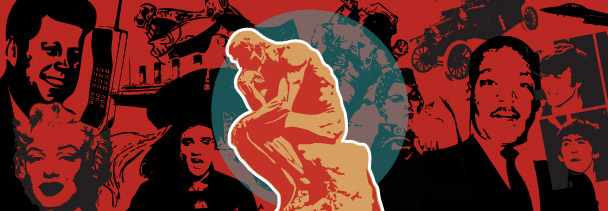This fall, students around the globe will have the opportunity to enroll in massive open online courses taught by two top professors in the College of Liberal Arts.
Offered through EdX, a major player in the massive open online course (MOOC) movement, the courses are free and open to the public. No longer bound by classroom walls, these virtual classrooms are structured around video lectures and interactive content.
Age of Globalization
Instructor: John Hoberman, professor of Germanic Studies
Globalization is a fascinating spectacle that can be understood as global systems of competition and connectivity. These man-made systems provide transport, communication, governance and entertainment on a global scale. International crime networks are outgrowths of the same systems. Topics include national identity, language diversity, the global labor market, popular culture, sports and climate change.
However, an increase in integration has not brought increased equality. Globalization creates winners and losers among countries and global corporations, making competition the beating heart of the globalization process.
The globalization process exemplifies connectivity. Globalization is unimaginable without the unprecedented electronic networks that project dominant cultural products into every society on earth.
Go to this website to register. Follow the conversation on Twitter and Paperli.
Ideas of the Twentieth Century
Instructors: Daniel Bonevac, professor of philosophy; Roy Flukinger, senior research curator at the Harry Ransom Center

The last century ushered in significant progress. Philosophers, scientists, artists and poets overthrew our understanding of the physical world, of human behavior, of thought and its limits, and of art, creativity and beauty. Scientific progress improved the way we lived across the world.
Yet the last century also brought increased levels of war, tyranny, and genocide. Man pushed boundaries of good and evil, right and wrong, justice and injustice – and people lost faith in values. Now, thinkers and leaders are reconstructing theories of value and creating institutions to embody them.
Go to this website to register. Follow the conversation on Twitter.
Join this thought-provoking, broad-sweeping course as it draws intriguing connections between philosophy, art, literature, and history, illuminating our world and our place in it.

